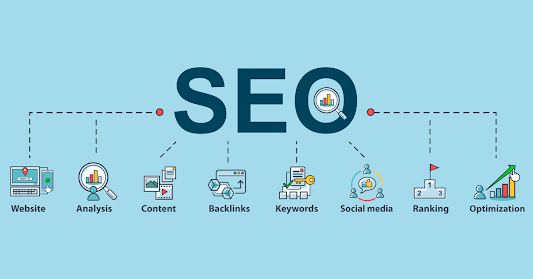Data is becoming more central to every aspect of
life in this ever-digitalizing world. Hence, it's time to protect its
integrity, and as you may know, there are few laws that guarantee data is
protected by all means. GDPR is one of the many laws that ensure data privacy.
GDPR stands for "General Data Protection Regulation" and is monitored
and regulated by the European Union. GDPR has established a few ground rules
and regulations that state that one's data can only be stored where there is a
lawful basis, like consent or obligation. Businesses that fail to adhere to
GDPR policies can be fined huge sums that can amount to as much as 40% of their
annual turnover. Apparently, WhatsApp was fined 225 million euros by the Irish
government for violating GDPR policies because it failed to provide clear
information to its users about how their data would be used, including how it
would be handled between WhatsApp and other Facebook companies.
GDPR and the Travel Industry
There is no doubt that data plays a major role
in the travel industry's evolution through its services and capabilities. It
represents the most significant factor that will decide which competitor will
prevail in this ever-growing industry.
With the implementation of GDPR, any travel
sales and service organization that collects or processes data on any European
Union member are subject to follow rules and regulations set by GDPR. The
travel industry is global in nature, so compliance with GDPR is mandatory.
Given the constant traffic of travelers across the globe, organizations should
be extremely cautious when handling customer information.
Frequent interaction with potential customers is
a regular part of working for a travel agency. Collecting customer data is an integral
part of the business to ensure that customers receive the best experiences and
services. Thus, a team of specialized professionals is needed to ensure that
the regulations set forth by the GDPR are followed and that our customers'
trust continues.
As you may know, the travel industry has two
sets of potential customers, one consisting of travel enthusiasts, while the
other consists of hotels and resorts. Therefore, it's our job to work to
balance the perspectives of these two platforms.
So, how exactly does GDPR play a key component
in the Travel Industry?
Taking customer consent where it’s needed,
taking consent from users is a significant part of GDPR; it gives customers
power over the data that’s being used and processed by the industry. Customers
must give their permission for an industry to use their data and how that data
can be used. For example, if a website or an application has a form that asks
for your details, you may come across a few checkboxes at the end of the page
asking for your consent to store and use your data.
The travel industry even relies on mass email
marketing and campaigns to promote its products and services to attract
potential customers. GDPR even restricts such emails from being sent without
the user’s consent. Yay, good news: "No Spam emails in your inbox
anymore".
We know that cookies are an important tool that can give industries a great deal of insight into their users' online activity. Even these cookies are governed by GDPR. Industries do not have the right to use and process users' data through cookies unless they consent from them. So, make sure to read ‘Terms and Conditions’ next time before accepting any cookies on a website.
Ensure Data Security, Travel industry often collect and store customers’ sensitive data like bank account details and phone number. Hence, this makes the travel industry an easy target for data security threats. You may be startled to know that, an investigation led by
which in 2020 revealed that data of 339 million guests of Marriott was maliciously accessed by cybercriminals in 2018.
Under GDPR policy, the industries are accountable for all the customer data they hold. The industries need to secure the access, usage, and processing of customer data across its organizational boundaries. Several audits need to be conducted to ensure that the tools, people, and resources responsible for handling the data are working as intended. At any point in time, the customers can request for their data to be deleted from the database.
How NOMADS can help travel industries with GDPR
We understand that GDPR is a complex and time-consuming process. Because of limited resources, start-ups in the travel industry find it extremely difficult to comply with GDPR. Therefore, we offer services to such industries at the most competitive prices. The services we provide are:
Data Storage: We believe that it’s easier to track and retrieve data when it is stored in proper order at one location. Don't worry if you don't have enough resources for that, we can assist you. Our cloud computing services offer subscription-based storage systems that are built with special algorithms to eliminate redundancies in Personally Identifiable Information (PII).
Data Security: The travel industry faces a lot of challenges when it comes to securing data. Our encryption software provides two-layer security for the data stored on our cloud storage system. In addition, we have a team of specialized auditing professionals who are capable of locating any vulnerable areas on-site.
Data Abstraction: Companies need to be aware of the data that can be shared if they have the consent of the customer. Using our software's capabilities, we can implement strategies like pseudonyms, surrogate keys, data masking, and field-level encryption to significantly improve the aspects of data protection when sharing confidential data with other travel companies, including airlines and travel agents.
To conclude, GDPR is a good thing. As a consumer, it gives you confidence in your data; as an industry, it enhances customer relationships by helping you win their trust and build better relationships with them.
Author - Kashyap Srinivas








As consumers GDPR is an important guardian of our personal and financial information and any information taken without our consent should be recognized as a crime, regardless of how dubiously companies try to hide it behind complex terms and conditions jargon which is understood as common sense that not a lot of people are going to read in depth. While moderate sharing of data is recorded to improve UX across websites, using our profiles to be sold for profit is morally grey at best and a breach of privacy at its worst. Hope that Nomads work towards safeguarding the consumer interests in their ventures. I found this blog informative and helpful and wish the team the very best in their ventures.
ReplyDeleteThanks for the great insight you have added to this article Ashwin!
DeletePretty well articulated, keep them flowin'
ReplyDeleteWe are glad you liked it, Patrick!
DeleteIn today's world, everyone wants everything to be on their fingers effortlessly. How many of us actually read the permissions or notifications at the apps installation or while visiting the websites? All we care about is the work through the Apps or contents.
ReplyDeleteClearly awareness about the integrity & protection of the Data is missing. People need to be aware what is happening in between the clicks.
Nomads is giving that platform for the consumers to know more about it. Looking forward to see more content from these blogs.
Cheers & all the best!
Thanks for the great insight you have added, Pradnya!
DeleteNice blog 👍
ReplyDeleteThe content in the blog is really helpful & informative.
ReplyDeleteKeep going..👍
All the very best
Thanks for the appreciation!
DeleteWasn't aware about this until now. Pretty detailed info��
ReplyDeleteWe are glad you liked it!
DeleteContent is pretty clear and informative. helpful keep up
ReplyDeleteWe are glad you liked it!
DeleteWasn't aware of this. Informative. Keep going...looking forward for more blogs from you
ReplyDeleteQuite well written , everyone needs to know this ..
ReplyDeleteWithout a doubt, our data today is the business of the century, and sometimes we never know what companies are doing with all the information they obtain from us. I think it is unavoidable that there is a change of information to offer us personalized services, but it is also important for us as users to read our terms and conditions before accepting.
ReplyDeleteExcellent blog to open my panorama on this subject.
waiting for your next blog
Almost all organisations today will be sitting on customer data and employee data.
ReplyDeleteData in the web era is used to market to us based on our search histories, transactions, preferences and interests. Organisations can also mine data for defensive purposes, for example to spot behaviour that is indicative of fraud or other criminal behaviour.
Irresponsible and reckless use of personal data has already been brought into the full glare of the public spotlight and there is a growing awareness of how data is used (and sometimes misused)
GDPR could also be seen a catalyst for change within organisations as the act of putting new data management structures in place and revising workflows creates efficiencies and a platform for data-driven insights.
GDPR might appear a purely defensive measure but it could also act as a stimulus for broader change and could create business opportunities.
The implementation of GDPR good practice within businesses is not just a quick fix but with new processes in place and more robust data platforms, organisations will be better able to mine their data and decades of experience. Some forward-looking organisations will work on GDPR alongside wider digital transformation projects across websites and apps that reinvent the company, its brand, ways of doing business, and transacting.
Nomads helping consumers to know more about this important issue.
Very well written by Kashyap Srinivas. CHEERS to Nomads. Looking forward to see more content from these blogs.
All the Best !!
~Mayur
👍
ReplyDeleteNice article. Very informative
ReplyDeletePretty well articulated! Travel businesses across the globe need to understand the importance of GDPR as it’s the need of the hour. This blog provides great insights on how by complying with GDPR requirements brands can avoid paying costly penalties while improving their patron’s data protection and trust. With this privacy regulation law being active, websites that do not abide by it will be inaccessible in European states.
ReplyDelete-Prateek